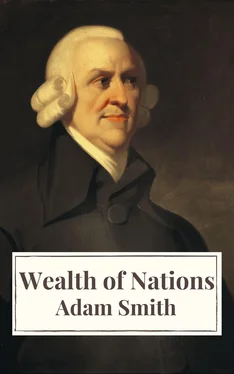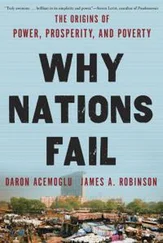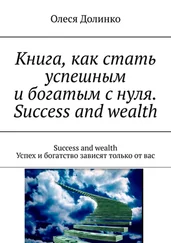Adam Smith - Wealth of Nations
Здесь есть возможность читать онлайн «Adam Smith - Wealth of Nations» — ознакомительный отрывок электронной книги совершенно бесплатно, а после прочтения отрывка купить полную версию. В некоторых случаях можно слушать аудио, скачать через торрент в формате fb2 и присутствует краткое содержание. Жанр: unrecognised, на английском языке. Описание произведения, (предисловие) а так же отзывы посетителей доступны на портале библиотеки ЛибКат.
- Название:Wealth of Nations
- Автор:
- Жанр:
- Год:неизвестен
- ISBN:нет данных
- Рейтинг книги:4 / 5. Голосов: 1
-
Избранное:Добавить в избранное
- Отзывы:
-
Ваша оценка:
- 80
- 1
- 2
- 3
- 4
- 5
Wealth of Nations: краткое содержание, описание и аннотация
Предлагаем к чтению аннотацию, описание, краткое содержание или предисловие (зависит от того, что написал сам автор книги «Wealth of Nations»). Если вы не нашли необходимую информацию о книге — напишите в комментариях, мы постараемся отыскать её.
Adam Smith's masterpiece, first published in 1776, is the foundation of modern economic thought and remains the single most important account of the rise of, and the principles behind, modern capitalism. Written in clear and incisive prose, The Wealth of Nations articulates the concepts indispensable to an understanding of contemporary society.
Wealth of Nations — читать онлайн ознакомительный отрывок
Ниже представлен текст книги, разбитый по страницам. Система сохранения места последней прочитанной страницы, позволяет с удобством читать онлайн бесплатно книгу «Wealth of Nations», без необходимости каждый раз заново искать на чём Вы остановились. Поставьте закладку, и сможете в любой момент перейти на страницу, на которой закончили чтение.
Интервал:
Закладка:
Labour, it must always be remembered, and not any particular commodity or set of commodities, is the real measure of the value both of silver and of all other commodities.
But in countries almost waste, or but thinly inhabited, cattle, poultry, game of all kinds, etc., as they are the spontaneous productions of nature, so she frequently produces them in much greater quantities than the consumption of the inhabitants requires. In such a state of things the supply commonly exceeds the demand. In different states of society, in different stages of improvement, therefore, such commodities will represent, or be equivalent to, very different quantities of labour.
In every state of society, in every stage of improvement, corn is the production of human industry. But the average produce of every sort of industry is always suited, more or less exactly, to the average consumption; the average supply to the average demand. In every different stage of improvement, besides, the raising of equal quantities of corn in the same soil and climate will, at an average, require nearly equal quantities of labour; or what comes to the same thing, the price of nearly equal quantities; the continual increase of the productive powers of labour in an improving state of cultivation being more or less counterbalanced by the continually increasing price of cattle, the principal instruments of agriculture. Upon all these accounts, therefore, we may rest assured that equal quantities of corn will, in every state of society, in every stage of improvement, more nearly represent, or be equivalent to, equal quantities of labour than equal quantities of any other part of the rude produce of land. Corn, accordingly, it has already been observed, is, in all the different stages of wealth and improvement, a more accurate measure of value than any other commodity or set of commodities. In all those different stages, therefore, we can judge better of the real value of silver by comparing it with corn than by comparing it with any other commodity or set of commodities.
Corn, besides, or whatever else is the common and favourite vegetable food of the people, constitutes, in every civilised country, the principal part of the subsistence of the labourer. In consequence of the extension of agriculture, the land of every country produces a much greater quantity of vegetable than of animal food, and the labourer everywhere lives chiefly upon the wholesome food that is cheapest and most abundant. Butcher's meat, except in the most thriving countries, or where labour is most highly rewarded, makes but an insignificant part of his subsistence; poultry makes a still smaller part of it, and game no part of it. In France, and even in Scotland, where labour is somewhat better rewarded than in France, the labouring poor seldom eat butcher's meat, except upon holidays, and other extraordinary occasions. The money price of labour, therefore, depends much more upon the average money price of corn, the subsistence of the labourer, than upon that of butcher's meat, or of any other part of the rude produce of land. The real value of gold and silver, therefore, the real quantity of labour which they can purchase or command, depends much more upon the quantity of corn which they can purchase or command than upon that of butcher's meat, or any other part of the rude produce of land.
Such slight observations, however, upon the prices either of corn or of other commodities, would not probably have misled so many intelligent authors had they not been influenced, at the same time, by the popular notion, that as the quantity of silver naturally increases in every country with the increase of so its value diminishes as its quantity increases. This notion, however, seems to be altogether groundless.
The quantity of the precious metals may increase in any country from two different causes; either, first, from the increased abundance of the mines which supply it; or, secondly, from the increased wealth of the people, from the increased produce of their annual labour. The first of these causes is no doubt necessarily connected with the diminution of the value of the precious metals, but the second is not.
When more abundant mines are discovered, a greater quantity of the precious metals is brought to market, and the quantity of the necessaries and conveniencies of life for which they must be exchanged being the same as before, equal quantities of the metals must be exchanged for smaller quantities of commodities. So far, therefore, as the increase of the quantity of the precious metals in any country arises from the increased abundance of the mines, it is necessarily connected with some diminution of their value.
When, on the contrary, the wealth of any country increases, when the annual produce of its labour becomes gradually greater and greater, a greater quantity of coin becomes necessary in order to circulate a greater quantity of commodities; and the people, as they can afford it, as they have more commodities to give for it, will naturally purchase a greater and a greater quantity of plate. The quantity of their coin will increase from necessity; the quantity of their plate from vanity and ostentation, or from the same reason that the quantity of fine statues, pictures, and of every other luxury and curiosity, is likely to increase among them. But as statuaries and painters are not likely to be worse rewarded in times of wealth and prosperity than in times of poverty and depression, so gold and silver are not likely to be worse paid for.
The price of gold and silver, when the accidental discovery of more abundant mines does not keep it down, as it naturally rises with the wealth of every country, so, whatever be the state of the mines, it is at all times naturally higher in a rich than in a poor country. Gold and silver, like all other commodities, naturally seek the market where the best price is given for them, and the best price is commonly given for every thing in the country which can best afford it. Labour, it must be remembered, is the ultimate price which is paid for everything, and in countries where labour is equally well regarded, the money price of labour will be in proportion to that of the subsistence of the labourer. But gold and silver will naturally exchange for a greater quantity of subsistence in a rich than in a poor country, in a country which abounds with subsistence than in one which is but indifferently supplied with it. If the two countries are at a great distance, the difference may be very great; because though the metals naturally fly from the worse to the better market, yet it may be difficult to transport them in such quantities as to bring their price nearly to a level in both. If the countries are near, the difference will be smaller, and may sometimes be scarce perceptible; because in this case the transportation will be easy. China is a much richer country than any part of Europe, and the difference between the price of subsistence in China and in Europe is very great. Rice in China is much cheaper than wheat is anywhere in Europe. England is a much richer country than Scotland; but the difference between the money-price of corn in those two countries is much smaller, and is but just perceptible. In proportion to the quantity or measure, Scotch corn generally appears to be a good deal cheaper than English; but in proportion to its quality, it is certainly somewhat dearer. Scotland receives almost every year very large supplies from England, and every commodity must commonly be somewhat dearer in the country to which it is brought than in that from which it comes. English corn, therefore, must be dearer in Scotland than in England, and yet in proportion to its quality, or to the quantity and goodness of the flour or meal which can be made from it, it cannot commonly be sold higher there than the Scotch corn which comes to market in competition with it.
Читать дальшеИнтервал:
Закладка:
Похожие книги на «Wealth of Nations»
Представляем Вашему вниманию похожие книги на «Wealth of Nations» списком для выбора. Мы отобрали схожую по названию и смыслу литературу в надежде предоставить читателям больше вариантов отыскать новые, интересные, ещё непрочитанные произведения.
Обсуждение, отзывы о книге «Wealth of Nations» и просто собственные мнения читателей. Оставьте ваши комментарии, напишите, что Вы думаете о произведении, его смысле или главных героях. Укажите что конкретно понравилось, а что нет, и почему Вы так считаете.












